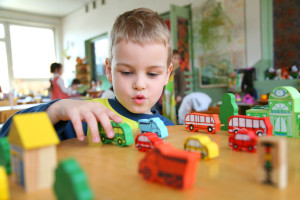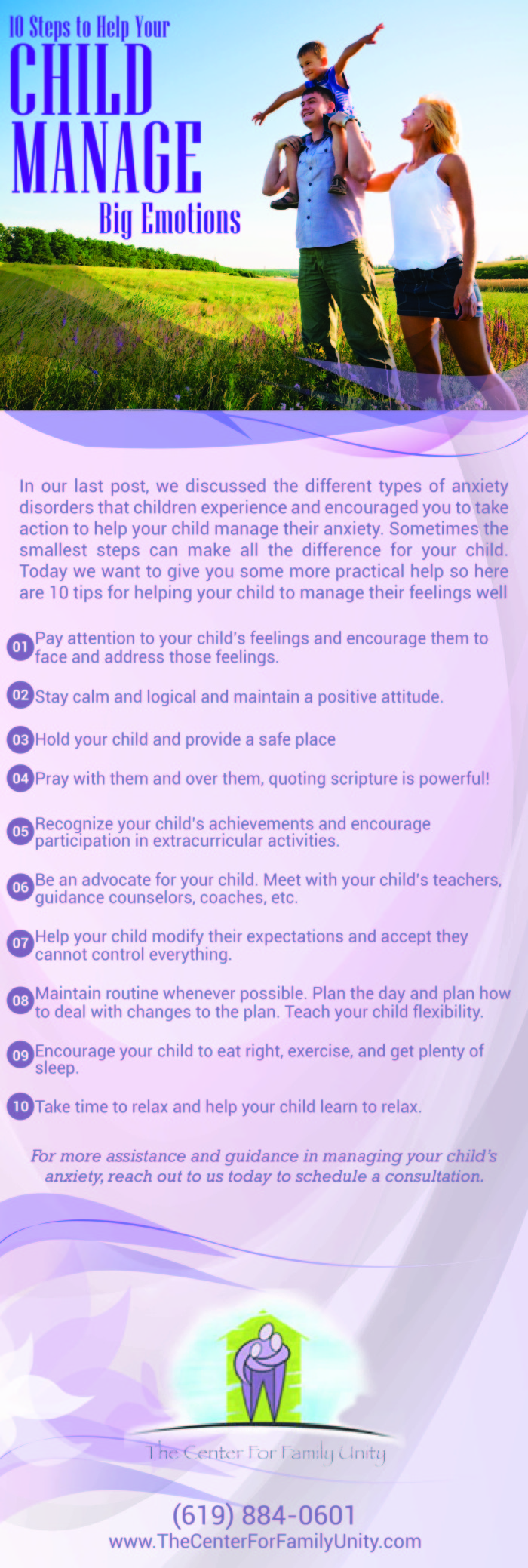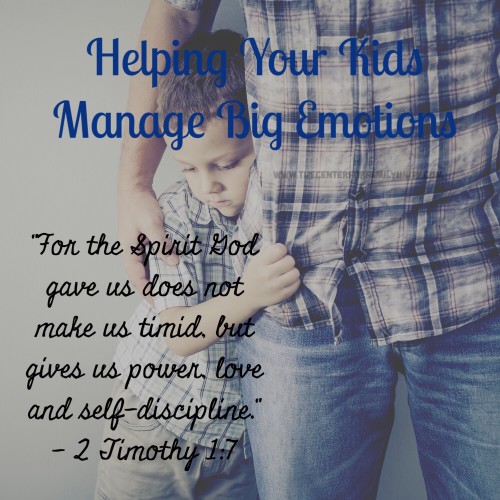by admin | Nov 17, 2016 | Uncategorized
As the air turns crisp and the time changes this month, we head into the Holiday season. A time of gatherings and cheer, but also excess! The holidays of winter often bring to mind the image of a full table—and a full stomach. We gather with friends and family and feast merrily on pies and potatoes, turkey and ham and all of the fixings that many of us dearly enjoy.
There is another side to that pretty picture, however.
What if our extra consumption of calories during the winter is fueled not by good cheer and companionship, but by anxiety? And, further, what if it’s not the gathering of loved ones that we most look forward to, but the food that we can’t get out of our minds?
Also, while we may welcome gatherings with friends and family, they do bring with them extra stress and preparation. Add to the mix the anxiety caused by a sputtering economy, and many of us might find ourselves reaching for “comfort” food.
An anxiety-provoked behavior, such as overeating, is an attempt to cope with that anxiety, but as with most such behaviors, it can become a problem itself. Overeating can become a compulsion and lead to health issues such as diabetes and obesity.
This is not to say that you should reflexively turn down that second piece of pumpkin pie, but if you were dreaming of that pie for days, and if, in fact, you care more about that pie than the people around you, then you may have a problem that needs attention.

According to Overeaters Anonymous, here are a few other common markers of compulsive eating:
1. Do you eat when you’re not hungry?
2. Do you go on eating binges for no apparent reason?
3. Do you have feelings of guilt and remorse after overeating?
4. Do you look forward with pleasure and anticipation to the time when you can eat alone?
5. Is your weight affecting the way you live your life?
6. Do you resent others telling you to “use a little willpower” to stop overeating?
7. Despite evidence to the contrary, have you continued to assert that you can diet “on your own” whenever you wish?
8. Do you eat to escape from worries or trouble?
9. Does your eating behavior make you or others unhappy?
If you think that you might be overeating compulsively, it is possible to recover. Help is available through the 12-Step programs Overeaters Anonymous and Food Addicts Anonymous, as well as the staff members of The Center for Family Unity. We can help you say yes to self-care and no to anxiety provoked behavior.
With the help and support of others, you can uncover the reasons behind your compulsive eating, find other strategies for coping with anxiety and get on a food program that can sustain and, even, restore your health.
While you may still have those dreams about that second piece of pumpkin pie, you can also live a happy, healthy and fulfilling life without it.
Call today 619-884-0601
by admin | Oct 18, 2016 | Uncategorized
Does your home struggle with a hyperactive child? Let the therapists at The Center for Family Unity help you create peace in your home!
Here are 18 suggestions to help your hyperactive child become successful:
- Be consistent in rules and discipline.
- Keep your own voice quiet and slow. Anger is normal. Anger can be controlled. Anger does not mean you do not love your child.
- Try to keep your emotions cool by bracing for expected turmoil. Recognize and respond to any positive behavior, however small. If you search for good things, you will find them.
- Avoid a ceaselessly negative approach: “Stop” “Don’t” and “No” in excess can make your child feel stuck in an impossible situation.
- Separate behavior, which you may not like, from the child’s person (e.g., “I love you. I don’t love when you track mud through the house.”).
- Establish a clear routine. Construct a timetable for waking, eating, play, television, study, chores and bedtime. Follow it flexibly when he disrupts it. Slowly your structure will reassure him until he develops his own.
- Demonstrate new or difficult tasks, using action accompanied by short, clear, quiet explanations. Repeat the demonstration until learned, using audiovisual-sensory perceptions to reinforce the learning. The memory traces of a hyperactive child take longer to form. Be patient and repeat.
- Designate a separate room or a part of a room that is his special area. Avoid brilliant colors or complex patterns in decor. Simplicity, solid colors, minimal clutter and a worktable facing a blank wall away from distractions help concentration. A hyperactive child cannot filter overstimulation.

- Do one thing at a time: Give him one toy from a closed box; clear the table of everything else when coloring; turn off the radio/television when he is doing homework. Multiple stimuli prevent his concentration from focusing on his primary task.
- Give him responsibility, which is essential for growth. The task should be within his capacity, although the assignment may need much supervision. Acceptance and recognition of his efforts (even when imperfect) should not be forgotten.
- Read his pre-explosive warning signals. Quietly intervene to avoid explosions by distracting him or discussing the conflict calmly. Removal from the battle zone to the sanctuary of his room for a few minutes can help.
- Restrict playmates to one or two at a time because he is so excitable. Your home is more suitable so you can provide structure and supervision. Explain your rules to the playmate and briefly tell the other parent your reasons.
- Do not pity, tease, be frightened by or overindulge your child. He has a special condition of the nervous system that is manageable.
- Know the name and dose of his medication. Give it regularly. Watch and remember the effects to report back to your physician.
- Openly discuss with your physician any fears you have about the use of medications.
- Lock up all medications to avoid accidental misuse.
- Always supervise the taking of medication, even if it is routine over a long period of years. Responsibility remains with the parents! One day’s supply at a time can be put in a regular place and checked routinely as he becomes older and more self-reliant.
Share your successful tips with his teacher. The ways you’ve found to help your hyperactive child are as important to him as diet and insulin are to a diabetic child.
If you need more help or guidance in supporting your hyperactive child, contact us now at 619-884-0601
by admin | Aug 27, 2016 | Uncategorized
PERSIST: 1.To be repetitious, insistent, or tenacious. 2. To hold firmly steadfastly to a purpose, state, or undertaking, despite obstacles, warnings or setbacks.
PERSISTENT: 1.The act of persisting. 2. The quality of being persistent; perseverance; tenacity

EFFECTIVE TOOLS WHEN DEALING WITH PERSISTENCE IN YOUR CHILD
The first step when dealing with the power struggle is to get some space. Disconnect and take a breath so you can come up with some positive redirections. Here are eight suggestions.
- Use loving guidance: Use loving guidance
- Have an open and loving face.
- Give the child direct eye contact.
- Listen more than you talk.
- Guide the child through the process of managing their big emotions.
- Find useful ways to make your child feel powerful: for example, you could make the child the seat belt monitor or have them push and load the child grocery carts. Giving children power in some areas makes them less likely to try and exert control in other areas.
- Teach children to say no respectfully: “No mom I don’t want to do the dishes but I will be willing to clean the family room.” or “I can’t do the dishes right now because I promised my friend I would come over right after dinner but I will do them before I go to bed tonight.” Allowing them to negotiate as well as make and keep commitments will make your house a much more peaceful place.
- Give children choices: For example, “Do you want to get in the car seat by yourself or do you want mom to help you?” If the child does not comply the next choice is an action you can take, such as, “We have to leave so if you don’t want to make the choice, I can make it for you and put you in your seat.”
- Do the unexpected: This is a fun way to break the power struggle. One mom who was in a power struggle to get her teenage daughter to vacuum her room taped a note to the vacuum “feed me I eat dust” and the daughter vacuumed her room upon returning from school.
- Pick your battles: Is this really something worth struggling over or could you let go of your position? Don’t major in the minors!
- Use signals: When you’re having a recurrent power struggle with a child have them come up with a signal you can use to remind each other of your agreement. Maybe a keyword or phrase that can be used in the moment to give you both the opportunity to take a step back and remember what you previously agreed to.
- Create win-win solutions: This is NOT a compromise, it is a solution both parties are happy with and feel their wants and needs have been met. “That works well for you but I would like to win too, so how can we work it out so we both can feel like we’ve won?”
- Name and validate: More than anything, your child wants to feel seen, heard and understood. The best way to accomplish this is by recognizing and validating their feelings in the moment. When they know you understand what they are feeling, they’ll be much more likely to stop and listen to what you have to say. Here are two examples of what this can look like:
- “You look sad…” “I can tell you really want that toy right now and I know it is really hard to wait to get something.”
- “You seem angry…” “You really want to stay outside right now and play with your friends.” or “I can tell you don’t want to come inside.”
Remember to come from your heart and really empathize with the child. Try to really see the child’s dilemma and listen to what they’re saying.
If you, the parent or caregiver, are struggling with your own big emotions or need support in guiding your child, call the experts at The Center for Family Unity at 619-884-0601 TODAY.
by admin | Jul 14, 2016 | Uncategorized
Ken, a serious and long-time drinker, hadn’t been feeling good for a while and his wife insisted that he go to the doctor. With reluctance, he finally did. Upon examination, the doctor said, “Ken, if you don’t stop drinking, you’re going to die.” Of course, this upset Ken tremendously. When he came home to his wife, he was near tears. “Oh dear, what did the doctor say?” she asked. “He said I’m going to die,” Ken wailed.
Poor Ken. He didn’t really hear what the doctor said. He was practicing one of his chronic avoidant behaviors: selective listening. He heard only what he wanted to hear and shut the rest of the message out.
His wife, Stella, has her own set of behaviors that she uses in her attempts to keep from dealing with certain things in life. She tries to control everyone and everything. She’s the one who made the appointment for Ken in the first place.
Avoidant behaviors such as those exhibited by Ken and Stella are examples of the subtle and not-so-subtle methods people use to side-step issues and situations.
We avoid because something is at risk.
The impulse toward perfectionism, for example, says I don’t want to risk doing something if I can’t do it perfectly. “Forgetting” doctor’s appointments could mean being afraid to find out if something is really wrong.

Other types of avoidant behavior:
- Not returning phone calls
- Always being late
- Smiling or laughing it off when you’re angry
- Projecting (putting our own stuff on other people)
- Manipulating
- Getting sick frequently
- Losing or misplacing thing
- Over-sleeping
Such behaviors keep us safe within the confines of our fear even though we may not realize fear motivates our responses.
Unfortunately, these behaviors also push people away from us. While drinking, gambling, and doing drugs are some more obvious and destructive practices that affect our whole world, these more subtle aspects affect the quality of our relationships and ultimately block any true intimacy we might have.
Often, people aren’t aware they are using avoidant behaviors – especially if, like Ken and Stella, those close to them also engage in their own ways of not dealing directly with issues. We may be made aware only when someone has the courage to question certain practices: “Seems like every time I ask you to visit my family, you get a headache.” Or through a direct confrontation: after all those months you neglected to open your mail, the IRS placed a lien against your bank account. Or maybe life becomes so painful that we are drawn to look at our own footprints — failed relationships, jobs, finances, child rearing or even our health.
It takes courage to confront such practices — your own or those of someone you’re in relationship with. But one thing is certain about any avoidant behavior: like the IRS, it won’t go away on its own. If you or a loved one are experiencing any of the symptoms noted above, you need support to break free! Please call a counselor at The Center for Family Unity TODAY. Don’t wait. Your peace depends on it!!
The Center For Family Unity [email protected] 619-884-0601
by admin | May 25, 2016 | Uncategorized
Last month we talked about how to recognize anxiety disorders and help your child begin to manage their anxiety. This month we want to dig deeper. Here are 10 practical steps you can take to help your child manage their emotions.

by admin | Apr 26, 2016 | Uncategorized
Anxiety Disorders can be a true hindrance in a child’s home and school life. A child may become so distressed and uncomfortable that they begin to avoid activities and/or social situations. When a child experiences a major life change (what may seem major for a child is different than for adults), the foundations of their world are shaken. They can’t go shopping, meet a friend for a cup of coffee or schedule their own counseling appointments.
Our children depend on US to help them discover coping mechanisms. Anxiety is fear-based but God’s perfect love casts out ALL fear! The answer is our dependence on the Lord and our relationship with HIM. Our children depend on us to lead them through this process of depending on the Lord.
Here are some of the Signs and Symptoms of Childhood Anxiety:
- Clinginess
- Impulsiveness
- Irritability
- Distractedness
- Concentration or Focus issues
- Nervous movements or twitches
- Jitteriness
- Sleep problems
- Restlessness
- Sweaty hands
- Accelerated heart rate and breathing
- Nausea
- Headaches
- Stomachaches
- Excessive worrying
These symptoms can significantly affect a child’s daily life. It can lead to poor school performance, a lack of socializing, and significant discord in the household. The good news is that pediatricians and psychotherapists understand anxiety disorders and can provide treatment, educate parents, and help children feel better.

It is extremely common for anxious children to avoid talking about how they feel. They may worry that their parents won’t understand or they may fear being judged. This can lead to many children with Anxiety feeling alone or misunderstood.
Parents of anxious children have reported that they knew there was something different about their child, but did not realize it was an anxiety problem. Some parents wait for their child to “grow out of it” while others view the anxious behaviors as normal. As a result, parents of anxious children and teens often feel confused about what to do, as well as frustrated, and overwhelmed. Education is essential for parents.
Anxiety Disorders are believed to be a combination of biological and environmental factors. Stressful events may trigger anxiety but stress alone is not the cause of an Anxiety Disorder.
There are different types of Anxiety Disorders including Generalized Anxiety Disorder, Panic Disorder, Obsessive-Compulsive Disorder, Post-Traumatic Stress Disorder, Separation Anxiety Disorder, Selective Mutism, Social Anxiety Disorder, and Phobias.
- Generalized Anxiety Disorder (GAD)
A child with GAD will worry excessively about a variety of things, strive for perfection, and seek constant approval.
- Obsessive-Compulsive Disorder (OCD)
A child with OCD may experience unwanted and intrusive thoughts (obsessions) or feel compelled to preform rituals (compulsions) in order to reduce anxiety.
A child with an intense and irrational fear of strangers, heights, darkness, flying, animals, blood, insects, or being left alone. Children may often begin to fear a specific object or situation after having an upsetting or traumatic experience, such as a dog bite or a car accident.
- Separation Anxiety Disorder
Children, most commonly 7-9 years old, who experience significant anxiety when separated from parents and are extremely homesick. These children typically refuse to have sleepovers and may even refuse to attend school.
A child that has intense fear of social or performance situations and activities. Social Anxiety can significantly impact academic achievement.
Separation Anxiety is extremely common in younger children, whereas adolescents tend to experience Social Anxiety.
If you review the disorders above you will notice threads of FEAR and feeling out of control.
Keep in mind that your child’s Anxiety disorder is not a sign of poor parenting. Anxiety can be successfully managed. Parents play a key role in helping their children manage their Anxiety. When coping skills and positive behaviors are rewarded and practiced in the home, children and teens can learn to face their fears, take reasonable risks, and ultimately gain confidence. Tools are important, however FEAR is a spiritual matter.
Here are a few verses from God’s Playbook of Life. Helping your children recite these gives them POWER and PROTECTION (remember it’s the sword of the Spirit in our armor):
Psalm 118:6
“The LORD is with me; I will not be afraid. What can mere mortals do to me?”
2 Timothy 1:7
“For the Spirit God gave us does not make us timid, but gives us power, love and self-discipline.”
I John 4:18
“There is no fear in love. But perfect love drives out fear, because fear has to do with punishment. The one who fears is not made perfect in love.”
Parents can help their children develop the appropriate skills and confidence to overcome their fears and anxieties. Children with anxiety can lead a full and happy life.
For help with your anxious child please call The Center for Family Unity, we specialize in helping you and your children 619-884-0601 www.TheCenterforFamilyUnity.com














